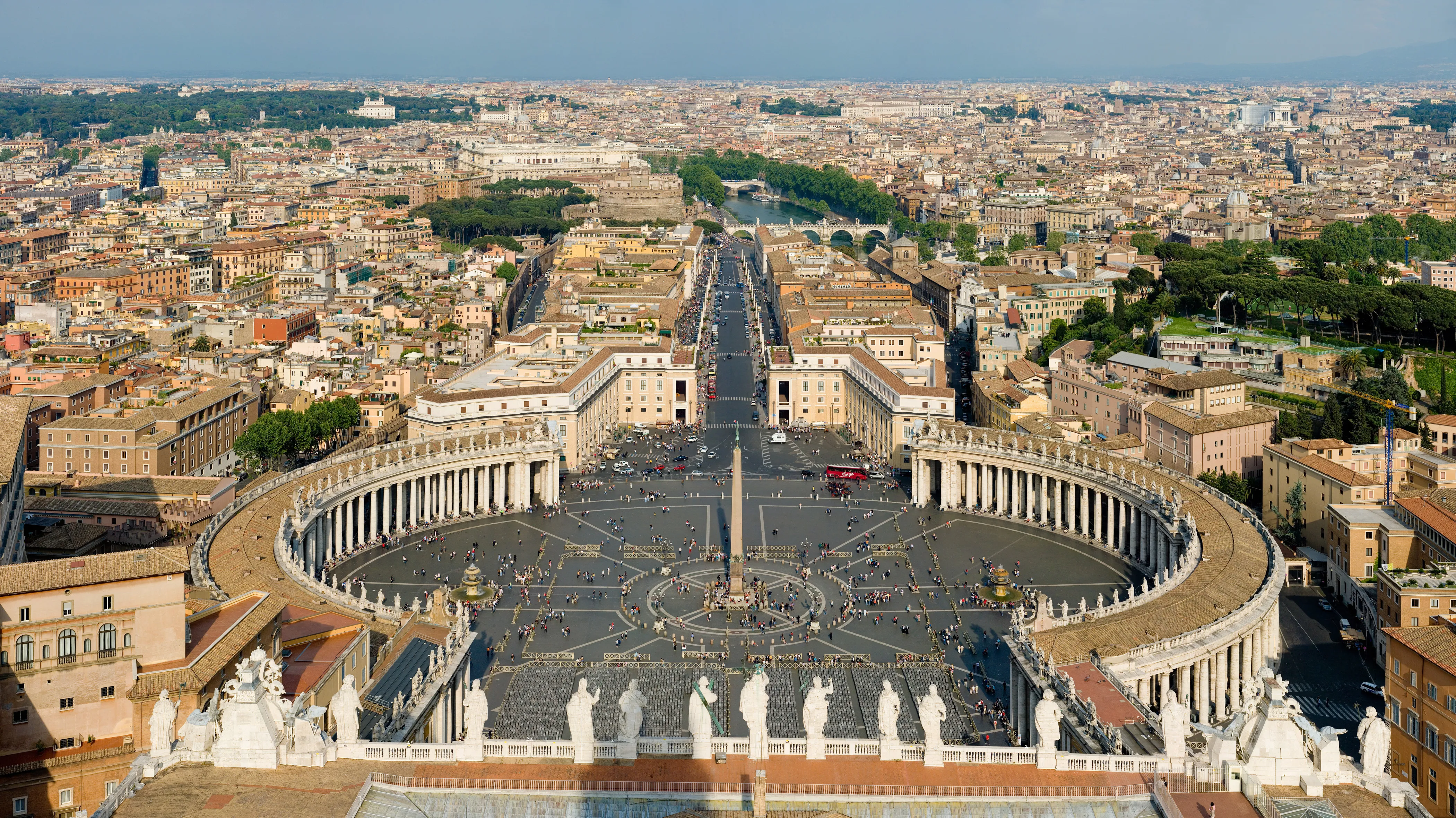The early church did not have such problems.
The Roman Republic ended in 27 BC and never met modern standards of democracy. By the time of Jesus’ death, Rome was a mighty empire, ruthlessly ruling the entire Mediterranean world. As a splinter sect of a minority religion in the corner of the empire, Christians had little political, economic, or social clout. They faced hostility and exclusion from Jews and persecution and death from Romans. They didn’t have to worry about which political candidates to support; how to weigh a politician’s policies versus his character; whether a larger, more active government was better or worse for the public; or what mass media voices to listen to. One writer (I think it was Philip Yancey) said that the New Testament’s advice to Christians regarding politics can be summed up in one word: “Duck!”
I don’t want to glorify persecution. Sometimes, as Tertullian said, “the blood of martyrs is the seed of the church,” and certainly, God can use for good what the world intends for evil. Other times, though, as in feudal Japan, persecution is tragically effective. And it’s never “good.” We should work for and be thankful when government fulfills its role of “punish[ing] wrongdoers and prais[ing] those who do good” (1 Pe 2:14), rather than persecuting the innocent. We can debate the sincerity of Constantine’s conversion and the effects it had on the health of the church, but it’s a good thing that the gospel had reached so much of the empire, that people throughout society – including its highest reaches – heard of Christ, that Christians could enjoy peace, that the faith went on to spread through all of pagan Europe.
It’s just that it’s the nature of our fallenness that we can take even good things and turn them into temptations. Peace and stability bring wealth, wealth tempts with greed and profligacy; converting enough of a society brings temptations to superficial social-pressure religion, hypocrisy, and nominal adherence to traditions rather than saving faith; a desire to bring our best to God can turn into legalism and the pursuit of splendor for the sake of our own pride; success brings power brings the temptation to wield that power against others. And so somehow we went from an itinerant carpenter-preacher who “had no place to lay his head” (Mt. 8:20), and who would not draw a sword even in self defense, to the fabulous wealth and power of the medieval Catholic Church, the violence and slaughter of the Crusades, and centuries of warfare in “Christian” Europe.

We rightly say that God is powerful – but, if God is most fully revealed in Christ, and Christ is most fully glorified in the cross, then God’s view of power is much different than we think. We think of power as power over others, the strength of the sword, the ability to enforce our will, the getting of what we want by coercion if necessary. The way of the cross is power under others, strength shown in weakness, the ability to sacrifice what we want in service, the transformation of ourselves and others from the inside out.1
Which brings us to yesterday. A man whose political career in many ways is defined by power over others – who celebrates wealth and military might and physical prowess, who condones or at least turns a blind eye to the violence of his supporters, who campaigns on a promise of retribution – was shot and nearly killed by someone who sought the ultimate power of the sword over him, then, in turn, was himself shot and killed. In 2016, Donald Trump told a crowd gathered at a Christian college,
I will tell you, Christianity is under tremendous siege, whether we want to talk about it or we don’t want to talk about it… And yet we don’t exert the power that we should have… Christianity will have power. If I’m there, you’re going to have plenty of power, you don’t need anybody else. You’re going to have somebody representing you very, very well. Remember that.
Please don’t misunderstand me: I’m not saying that Donald Trump in any way deserves or earned this or that it’s in any way justified. And, as Samuel James wrote in his very helpful response yesterday, others’ actions do “not force anyone to grab a weapon and aim it at someone. Individual human agency is still a thing.” But we, the church, have been too willing to live by the sword; we should not be surprised when people die as a result (Mt 26:52).
Another thing about the early church: They were unafraid. In reading the New Testament letters, we see that they were at times (to put it charitably) a hot mess, dealing with economic favoritism (James 2), racial and religious prejudice (Gal 2), freeloaders and busybodies (2 Thess 3), status-seeking profiteers (2 Cor 11), and even incest (1 Cor 5). They had no written New Testament, no seminaries, no printing press, no Zondervan or YouVersion or RightNow Media. Jewish Christians faced the shattering loss of their ancestral city and temple in AD 70 and the rejection of their fellow Jews; many Gentile Christians were fresh converts from paganism with little heritage or knowledge to draw on and lifetimes to unlearn; Jewish and Gentile Christians alike faced hostility and persecution from Romans. At times they faltered or worried. (The New Testament letters tell us that, too.) But, as seen throughout the book of Acts, they also showed remarkable courage: not the sort of courage that charges forward, gritting its teeth in the face of danger, but a calm, settled confidence that Christ is in control and will keep his promises, that the church will stand and will spread and witness to the ends of the earth, that Christ will return.
In the aftermath of the attempt on Trump’s life, many have blamed rhetoric from Trump’s political opponents for inciting the violence. For example, last night, before law enforcement had identified any motive, J.D. Vance, Senator and vice presidential hopeful, wrote,
The central premise of the Biden campaign is that President Donald Trump is an authoritarian fascist who must be stopped at all costs. That rhetoric led directly to President Trump’s attempted assassination.
Without absolving the shooter of responsibility (again, as Samuel James said, “Individual human agency is still a thing”), it seems to me that there’s plenty of blame for the rhetoric to go around. The left scorns and disdains the right as uneducated, bigoted, and behind the times; so the right looks for a “fighter,” a pugilist who’ll stand up to the left’s assertions of power; the left reacts in alarm, labeling the right an unprecedented danger and threat to democracy; the right labels the left destroyers of America. (And, lest anyone try to blame one side or the other for starting it, the cycle could be traced several steps back through American history.) It’s “live by the sword, die by the sword,” in rhetoric and anger and vilification, across entire political parties and an entire society: every attempted assertion of power by the one side justifies an act of the other. And everyone’s afraid: somehow both sides feel like they’re losing, with the left bemoaning an out-of-control Supreme Court and aspiring authoritarians and a biased Electoral College and Handmaid’s Tale Christian nationalists, while the right laments the deep state and fake-news media and an invasion of illegal immigrants and conspiring Big Tech and coastal elites. As Alastair Roberts observes:
In many respects, we all live in a negative world now. The loss of consensus reality, the failure of effective consensus-forming institutions, the extreme polarization of our politics, our extreme visibility to the scrutiny and judgment of others, and the fragilization of our communities and identities leave everyone feeling exposed and vulnerable in new ways. No one thinks that they are winning. [emphasis added]
And, unlike the early church, we’ve been afraid along with everyone else. Despite our strength – a majority of the population, at least on paper, with evangelicals in particular constituting a significant voting bloc, in perhaps the wealthiest and most powerful country in history – we talk about how we’re persecuted and make dire predictions of losing our religious liberty and nod along with Trump when he talks about how we’re under tremendous siege. There may be some truth there (we do face genuine hostility (Jn 15:18-19), and there are genuinely concerning trends in American Christianity), but so much of what we hear is driven by fear and alarmism, as we fall prey to human weakness, political and religious figures realize they can use fear to manipulate us, and social media algorithms push us into our bubbles, rather than confident faith as we seek to discern how best to follow Christ.
We can’t necessarily end the cycle of the physical or rhetorical sword. But we can opt out: Pray for our leaders. Pray for both political parties. Love our enemies. Don’t regard acquaintances, family members, neighbors as enemies just because they have different political views. Spend less time on the news. Share grace and love on social media instead of political memes. Serve others. Imitate Christ.
Footnotes
-
These ideas are taken from Carl Trueman’s “Luther’s Theology of the Cross” and Gregory Boyd’s The Myth of a Christian Nation. ↩
